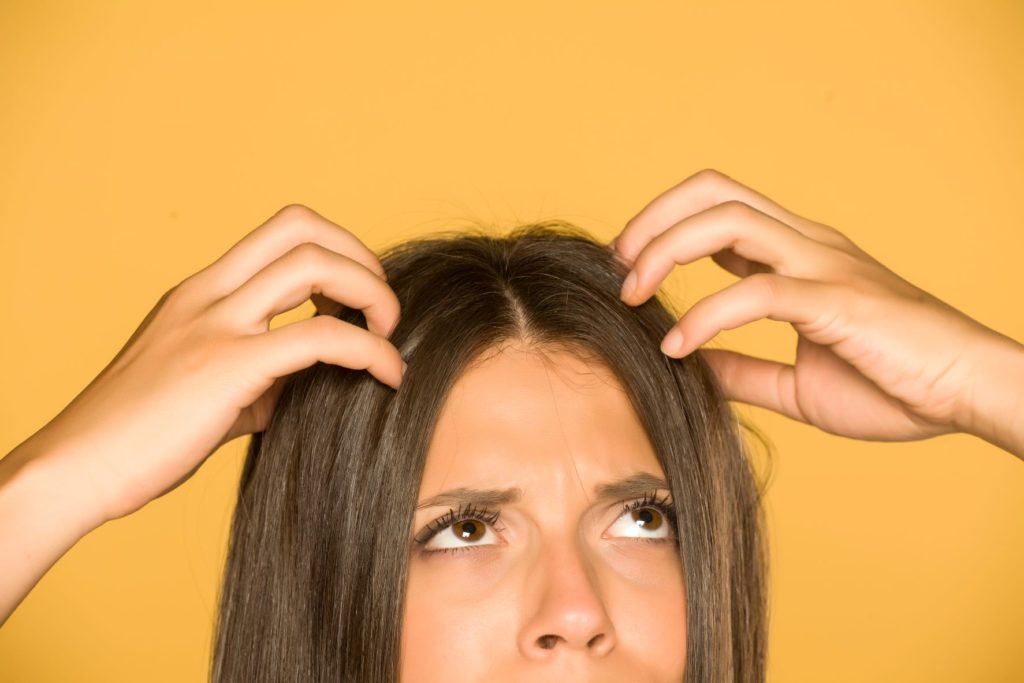You may be wondering whether you need an evaluation for your itchy scalp.
Maybe the itch is keeping you up at night, or maybe it is causing some hair loss or hair thinning, or maybe it is the result of a flaky scalp? If so, it might be time to seek help from your board-certified dermatologist.
What Can Cause An Itchy Scalp
Many things can cause an itchy scalp. If you have dandruff, this could be the culprit. Dandruff is a condition that causes dead skin cells to accumulate on the scalp. The cause can be also compounded by a type of yeast overgrowth called Malassezia. This can lead to itchiness and flaking.
Other possible causes of an itchy scalp include:
- Dry skin
- Allergic reactions
- Psoriasis
- Eczema
If you think you might have one of these conditions, it’s important to see a dermatologist for an evaluation. They can determine the cause of your itchiness and recommend the best treatment option.
What An Itchy Scalp Can Mean During Hair Replacement Treatments
If you’re undergoing hair replacement treatments, such as hair transplants or hair restoration in Philadelphia, an itchy scalp can be a side effect of the surgery. It’s important to let your doctor know if you’re experiencing itchiness so they can determine if it’s a normal part of the healing process or another underlying condition.
In some cases, an itchy scalp can also be a sign of infection. If you have a fever or your itchiness is accompanied by other symptoms, such as redness or swelling, it’s important to be evaluated right away.
When To See A Doctor
If you’re experiencing an itchy scalp, there are a few things you can do at home to help relieve the itchiness. These include:
- Washing your hair more frequently with an anti-dandruff shampoo
- Avoiding hairstyles that pull on the scalp and cause traction or irritation, such as tight braids
- Using a humidifier to add moisture to the air
If home remedies aren’t helping or you’re concerned about your itchy scalp, it’s time to see a doctor. They can perform a physical exam and order tests to determine the cause of your itchiness. Once the cause is determined, they can recommend the best treatment option.
How is An Itchy Scalp Evaluated?
Your doctor will start by asking about your medical history and symptoms related to your itchy scalp. They’ll also perform a physical exam of your scalp. During the exam, they’ll look for signs of skin conditions, such as dandruff, eczema, or psoriasis.
They might also order tests to confirm a diagnosis or rule out other possible causes of your itchiness. These tests might include:
- A skin biopsy involves taking a small sample of skin from the affected area to be examined under a microscope
- Blood tests to check for conditions that can cause an itchy scalp, such as allergies or thyroid problems
- A fungal culture is used to check for a fungal infection
- Once the cause of your itchy scalp is determined, your doctor can recommend the best treatment option.
Treatment Options for An Itchy Scalp
The treatment for an itchy scalp will depend on the underlying cause. If you have dandruff, your doctor might recommend an over-the-counter anti-dandruff shampoo or may prescribe a prescription strength shampoo for example.
For more severe cases of itchiness, such as those caused by psoriasis or eczema, your doctor may recommend a prescription medication to treat your specific condition.
If you are experiencing an itchy scalp and are unsure of the cause, contact a hair loss dermatologist in Philadelphia. At Embrace Dermatology, you will receive a detailed evaluation to find the root of your problem. Contact us to start your road to recovery.

